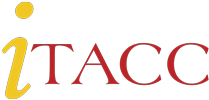Project Name
Rural Outreach and Advocacy
Type of practice
Other successful practice
Areas of Emphasis
Formal and informal community supports
Quality Assurance and training in self-advocacy, leadership, and self-determination
Project/activity years
2022
2021
2020
Population of focus
People with intellectual and developmental disabilities
Strategies Used
Outreach
Training
Supporting and Educating Communities
Coalition Development and Citizen Participation (self-advocacy training, educating policymakers, and citizen leadership skills)
Project Description
New York State has extensive rural areas and CDD had learned, through outreach, that people with DD in our rural areas are often disconnected from services, supports, and advocacy opportunities. The New York DD Council funded a Rural Outreach and Advocacy grant in order to foster the development and maintenance of rural self-advocacy groups. The grant began in 2020 and was able to establish and facilitate several self-advocacy groups throughout our rural areas in the central part of the state. These groups met remotely for the first two years of the grant. Participants in the meetings were empowered to chose topics of focus and importance.
Impact (or impact-to-date) of the project/activity for people with ID/DD and their families
Through the grant efforts, self-advocates participated in a civic empowerment series called, “We the People.” This series included leadership development and advocacy training. Other trainings included social and emotional skills for dating and healthy relationships, and community engagement. Other participants created the NY State of Expression Art Museum where creative works from various people with DD is displayed in a virtual museum with an annual in-person installation at the Cerebral Palsy of New York State (CP State) Conference. In addition to the direct benefits to participants, the CP State affiliates increased their collaboration with one another, which resulted in resource sharing, expertise, and knowledge exchange. Participating affiliates were empowered to develop new programming for the people they serve, which resulted in broader experiences for many participants that would not otherwise have had access to such programming.
Story
Story perspective
Person with ID/DD
What were things like BEFORE you/your family/partner/community participated in the project/activity?
One of the participants in the advocacy training, “We the People,” had been experiencing an issue at work where she could not operate the accessible entry button to the bathroom. Because of this issue, she felt a lack of independence and very frustrated each time she had to use the restroom.
What are things like AFTER you/family/partner/community participated in the project/activity?
Because of the advocacy training component of the grant, this participant was able to affect change by determining who on the management team at her workplace she needed to contact. She brought up the conversation and the issue was remedied. Because of this, the participant is now able to independently use the restroom at her workplace, and has felt much more confident and comfortable in the space because of this.
What was most beneficial to you/family/partner/community from participating in this project or practice?
The training provided the participant the tools she needed to feel empowered to advocate for herself. She was able to create a step by step plan for herself to address an issue she was experiencing. What’s more, not only did the participant gain confidence by advocating for herself, but her issue was also addressed in a timely way. She credited the advocacy training directly for teaching her the skills she learned to impact this issue.
The role of the DD Council in achieving positive outcomes through this project.
The goal of this project was to expand access to advocacy training to the more rural and underserved areas of our state. In the example above—one of many—it’s clear that people in these underserved areas were in need of advocacy skills training opportunities. Based on the outcomes, we can clearly see that those who participated have also been able to apply the skills they have learned to situations in their daily lives. This is the most positive outcome we could have anticipated.
Contact Information
Kimberly Berg
Email: kimberly.berg@cdd.ny.gov
Phone: (518) 402-3472
Council location: New York
Website: cdd.ny.gov
